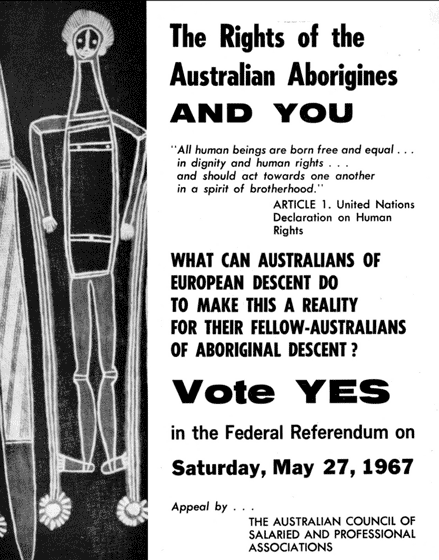A few years ago the Australian historian and novelist Peter Cochrane wrote: “Drape ‘Anzac’ over an argument and, like a magic cloak, the argument is sacrosanct.”
And so it is, apparently, with the decision to spend $498m on an upgrade of the Australian War Memorial, Australia’s secular shrine for the worship of all things Anzac.
Where was the political argument about spending such an enormous amount of money on a public establishment whose budgetary treatment would appear favourable to that afforded other national cultural institutions that are buckling under constant pressure of doing less with more?
Missing in action – that’s where. Missing in action because the (political) fix has been in on this decision since April when war memorial director and former defence minister, Brendan Nelson, foreshadowed the spend in an ABC story that, from his point of view, couldn’t have gone more swimmingly.
Instructive in that story were the director’s comments that, “As a nation we have a responsibility perhaps to do better and in this regard we have received very strong support from our government, supported by our opposition.”
On the potential cost of the venture, he said, “Whatever the cost is, as one man said to me, ‘We’ve already paid. We’ve paid in blood, and whatever the government spends on the Australian War Memorial ... will never be enough’.”
Paid in blood ... really?
It seemed unusual at the time that such an expensive project would be foreshadowed by an institution director rather than the relevant minister or, indeed, the prime minister. But that is the political power and, perhaps, the cultural potency of Anzac in 2018 Australia whose narrative has, especially during the past four years of the centenary of the first world war, become ever-increasingly militarised.
But that is the political power and, perhaps, the cultural potency of Anzac in 2018 Australia
Did federal cabinet even debate it? Or did it just get the rubber stamp because of the magic Anzac cloak? What about the federal opposition: has it held – or will it hold – the proposal up to the budgetary light and scrutinise the sums, as it would, on far smaller infrastructure spends?
But questions need to be asked about the profligacy of this spending on more Anzac commemoration. This is especially so because $498m commitment comes after the $600m-plus of (mostly) government spending on (what I believe to be the over-the-top) four year commemoration of Australia’s involvement in the first world war.
Australia’s spending on commemoration during Anzac 100 has dwarfed that of other participant nations in the first world war, even though other countries experienced many more combatant and civilian deaths. Indeed, Australia has spent the equivalent of almost $9,000 for every soldier killed, compared with the United Kingdom ($110m, or $109 on each of its 1.01 million dead), New Zealand ($31m, or $1,713 on each of its 18,100 soldiers killed) and Germany (2.8 million fatalities, $6m total, $2 on each).
Add that to the cost of the memorial expansion and you get $1.1bn. That’s an awful lot of Australian war commemoration, money that might be better spent on the living.
The expansion is expected to effectively double the display areas of the memorial so that more military hardware such as helicopters can be displayed. This bucks the modern museological trend whereby institutions are doing more with less space and “democratising” collections by spending on digitisation to enhance online access.
Under the planned expansion visitors to the memorial would apparently be able to watch soldiers at work in real time. Quite how this fits the memorial’s mandate of helping Australians “remember, interpret and understand” their country’s war experience is quite unclear, especially as it’s only with the benefit of hindsight, due analysis and scholarship that a war can be properly interpreted.
Just on Wednesday I visited in Sydney a memorial to the first world war soldiers built by Indigenous man Douglas Grant, who fought in the first world war and was captured and imprisoned in Germany. I’ve written extensively about Grant before, including here and here. The life of Grant – who became an advocate for the Indigenous victims of mass killings on the Australian colonial and postcolonial frontier after the 1928 Coniston massacre, ironically, perhaps, perpetrated by an Anzac – is emblematic in some ways of the tensions at the heart of Australia’s modern foundation narrative.
A massacre survivor himself, he was stolen from the Queensland rainforest by white invaders, raised in Sydney by a non-Aboriginal family, fought for the empire and his country (in both the Indigenous spiritual and nation-state sense) and became a fierce advocate for Indigenous human rights.
The war memorial clings to the “black digger” (that is, soldier of the Empire) trope that attaches limpet-like to Grant (even claiming he was orphaned due to tribal violence), though it will not tell the stories of the Black warriors who defended their continent from the invaders.
Peter Cochrane’s “magic cloak” of Anzac denies oxygen to the true foundation story of colonial and federated Australia: the frontier violence that spread like wildfire across the continent post-1788 after Indigenous people resisted the red coats, “settlers”, raiding parties and militias.
In Canberra, a city of monuments supposedly serving national memory, there is still no official memorial to the Indigenous dead of the frontier wars, who numbered, by credible estimation, up to 60,000 in Queensland alone – the same as Australian personnel killed in the first world war.
Meanwhile, Douglas Grant’s little memorial in front of the old Callan Park mental hospital at Rozelle, where he lived on and off while coping with his shell shock, is rusting and its concrete foundation decaying. Its little wishing well centrepiece is filled with fetid water.
How appropriate it would have been to spend a few thousand dollars of all that Anzac centenary money on this modest memorial that can evoke such truth about Australia’s alternative, real foundation story. Better still – how about a little bit of the $498m about to be so profligately blown on the Australian War Memorial?




 Most Australians think this Referendum gave Aboriginal Australians the right to vote. That is not so. Aboriginal people had the right to vote in all Australian elections well before the referendum of 1967.
Most Australians think this Referendum gave Aboriginal Australians the right to vote. That is not so. Aboriginal people had the right to vote in all Australian elections well before the referendum of 1967. Presently work is being undertaken on the wording of another referendum question about the place of Aboriginal people in the Constitution and soon it will be put to the Australian people. As it is presently worded, the Constitution reads as if Australia’s national story began with the arrival of the British colonists. Its wording also allows the Commonwealth government to discriminate against people on the basis of their race. The new referendum aims at making changes in both these areas.
Presently work is being undertaken on the wording of another referendum question about the place of Aboriginal people in the Constitution and soon it will be put to the Australian people. As it is presently worded, the Constitution reads as if Australia’s national story began with the arrival of the British colonists. Its wording also allows the Commonwealth government to discriminate against people on the basis of their race. The new referendum aims at making changes in both these areas.




